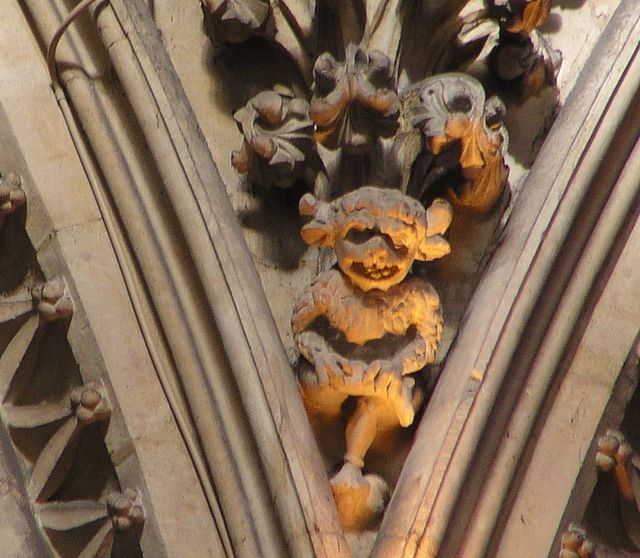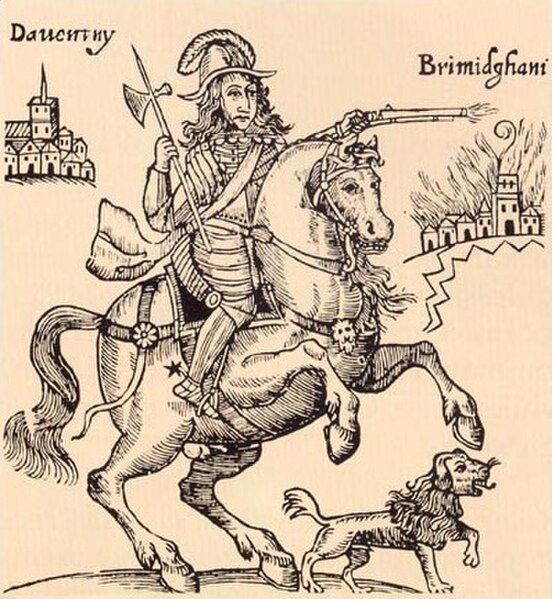An imp is a European mythological being similar to a fairy or demon, frequently described in folklore and superstition. The word may perhaps derive from the term ympe, used to denote a young grafted tree.
French illustration of imps (c. 1838)
Old woodcut depicting a woman feeding imps
A statue of the Lincoln Imp inside the medieval Lincoln Cathedral in Lincoln, England. It has now become a symbol of the city.
In European folklore of the medieval and early modern periods, familiars were believed to be supernatural entities, interdimensional beings, or spiritual guardians that would protect or assist witches and cunning folk in their practice of magic, divination and spiritual insight. According to records of the time, those alleging to have had contact with familiar spirits reported that they could manifest as numerous forms, usually as an animal, but sometimes as a human or humanoid figure, and were described as "clearly defined, three-dimensional... forms, vivid with colour and animated with movement and sound", as opposed to descriptions of ghosts with their "smoky, undefined form[s]".
A late-16th-century English illustration of a witch feeding her familiars
A story of "a priest who for the space of 40 years employed a familiar spirit", illustrated in Elizabeth I of England's copy of the Histoires Prodigieuses by Pierre Boaistuau
Prince Rupert and his "familiar" dog in a pamphlet titled "The Cruel Practices of Prince Rupert" (1643)
The Love Potion by Evelyn De Morgan, 1903: a witch with a black cat familiar at her feet







